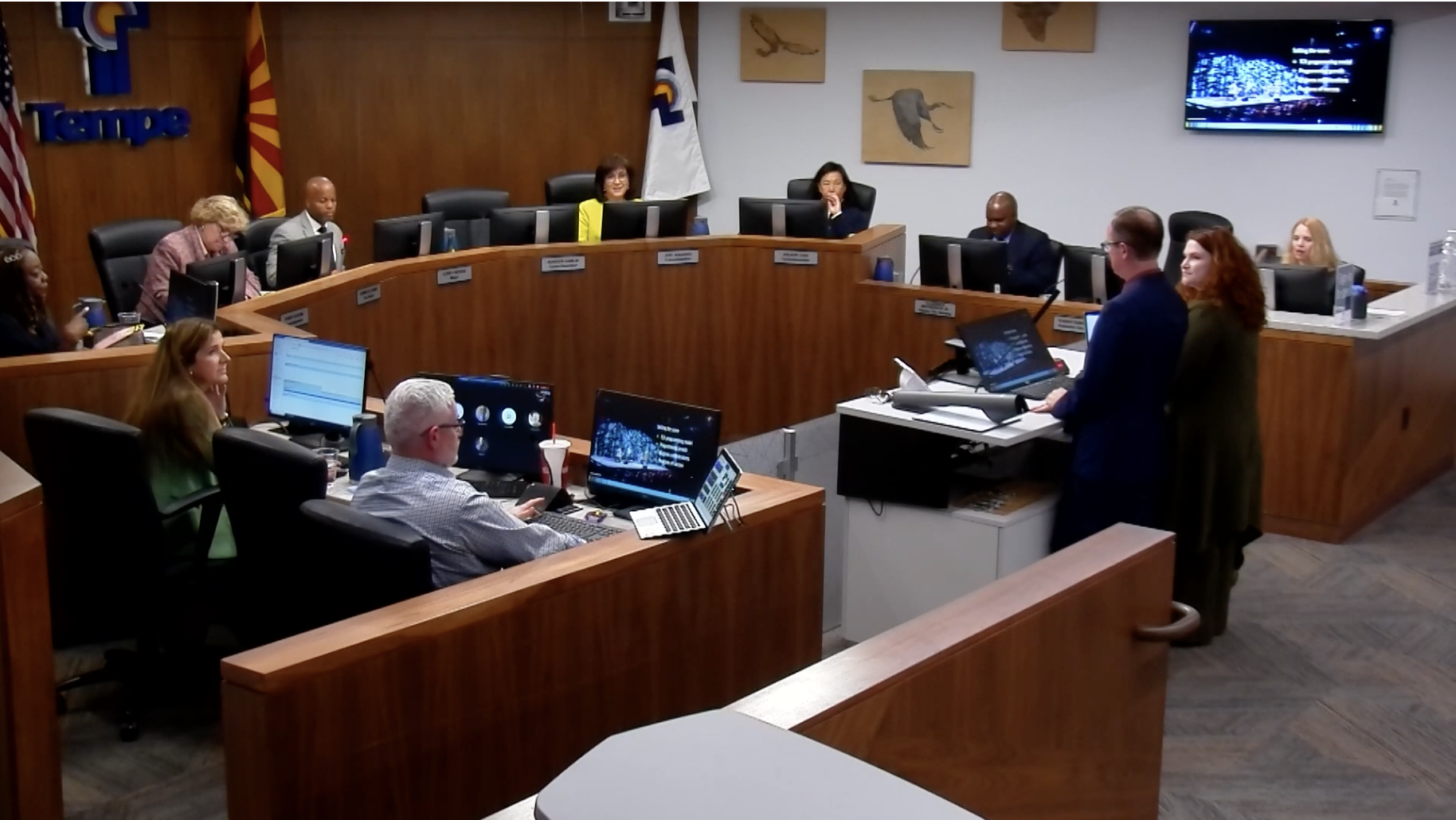Last week, Tempe City Council held a work study meeting, where city staff presented their work on expanding where Accessory Dwelling Units (ADUs) could be built within Tempe. ADUs are small, backyard homes which typically rent for less than other housing types and can help expand housing supply in neighborhoods.
Tempe’s 2019 ADU ordinance resulted in only a handful of units being built. This is likely due to the extremely restrictive nature of the ordinance, which limits allowed areas to large single-family properties in multi-family zones.
Per city staff, a mere 250 parcels are currently eligible for ADUs. Of these 250, 7 had requested to build ADUs. While the overall numbers are small, that represents a near 3% uptake rate. This suggests expanding where ADUs can be built while streamlining the permitting process could result in important new housing supply for Tempe.
Skepticism on council
The public survey on ADU expansion presented before council was overwhelmingly in favor of expanding this important affordable housing option. At a time when Tempe and Arizona face a crisis-level housing shortage, this policy should be an easy win.
However, most councilmembers seemed skeptical. Many expressed a desire for more public input and discussed adding additional restrictions which could make any ADU expansion less effective at increasing housing supply.
Councilmember Chin stated she wanted to “move cautiously” and seemed in favor of owner-occupancy requirements. Councilmember Hodge questioned how many ADUs were desirable in a given neighborhood, while Councilmember Garlid seemed somewhat favorable to aspects of expansion but questioned whether it was right for Tempe. Councilmember Navarro said that while it was great they were exploring ADUs, this was not a “rush project.”
There was consensus about wanting more outreach to neighborhood associations and more meetings, all but ensuring a slower process. There was also widespread concern about the potential for more short-term rentals in neighborhoods.
Mayor Woods shows real leadership on ADUs
During the meeting, Mayor Woods was the most forward-looking on the housing situation facing Tempe and the importance of expanding ADUs. Citing the growing population in Maricopa County and the lack of housing options, Woods seemed determined to expand ADUs in some form. “I’m happy to get some additional feedback and talk about ways we might be able to tweak the policy,” Woods said, “I think this is something we have to get to a ‘yes’ on… we need more housing.”
Woods went on to say that while Tempe once led on this issue, other cities in Arizona, like Phoenix, have passed Tempe with more ambitious ADU laws. He is completely correct about this, and it is important to see leadership that wants the city to lead on housing.
Getting ADUs right matters
The details of how Tempe expands ADUs will matter greatly. When it comes to housing policy, the city should air on the side of simpler, flexible rules. What might be a well-intentioned provision can end up denying a place to call home to someone in our community.
Ideas floated by council members would make any potential ADU expansion less effective. Owner-occupancy requirements are a key example. The AARP notes that owner-occupancy requirements make financing of ADUs more difficult, limit the appraised value of a property, and reduce options for lenders.
Parking mandates are another example. Tempe currently does not mandate additional parking for ADUs, one of the few best practices adopted in the current ordinance. These mandates are costly for owners, raising construction costs anywhere from 10 to 20%. They can also make it impossible for owners of smaller properties to build ADUs.
Research on ADUs suggests that fears surrounding parking, owner-occupancy, and even short-term rentals are vastly overblown. The greater danger is in passing an ordinance that will allow fewer homes and thus lead to higher rents.
Tempe is falling behind on housing crisis solutions
Mayor Woods is rightfully concerned that Tempe is quickly slipping behind. Many Councilmembers seemed content to move ahead too slowly on a necessary, but overall small reform.
Cities across the country—and even within Arizona—are ahead of Tempe with much more ambitious policies to expand the supply of housing in their communities. That many on council seem content with an increasingly unaffordable status quo and are waffling on one of the easiest possible reforms reveals the fundamental lack of seriousness local government has brought to the housing crisis.
Rent hikes are not waiting for another study or more community input. Tempe City Council is inadvertently making a strong argument for the state legislature to take action. While cities tell state legislators that their hands are tied on housing, the reality on the ground is that cities across Arizona are stalling on the simplest reforms after having years to consider them. The case for putting statewide guardrails on exclusionary zoning is clear.
Still, Tempe has all the right ingredients to become a leader in housing affordability. It will require a city council that has courage, urgency, and the ambition to adopt best practices on land use that will allow for more housing of all types to create broad-based affordability in Tempe.
If you want to reach out to City Council and urge them to expand ADUs, you can email [email protected] or call 480-350-8110. You can also find contact information for individual council members here.

